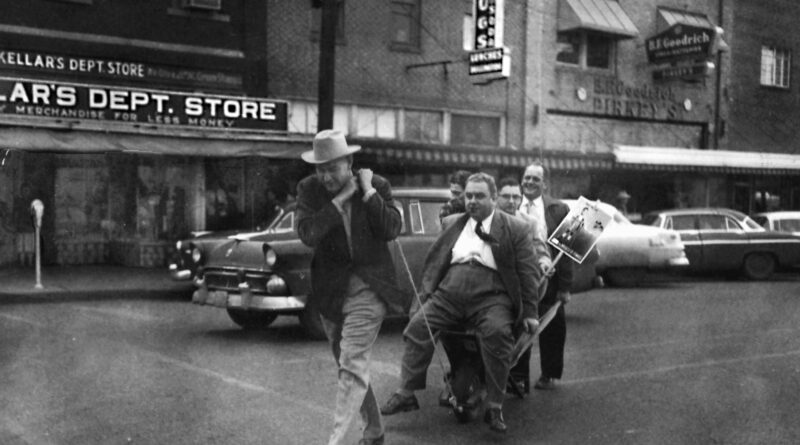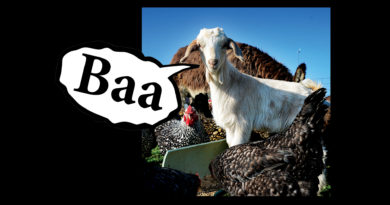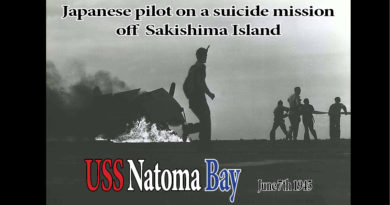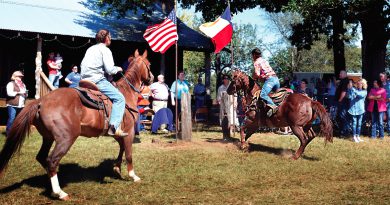Radio patriarch’s ghost echoes through broadcast
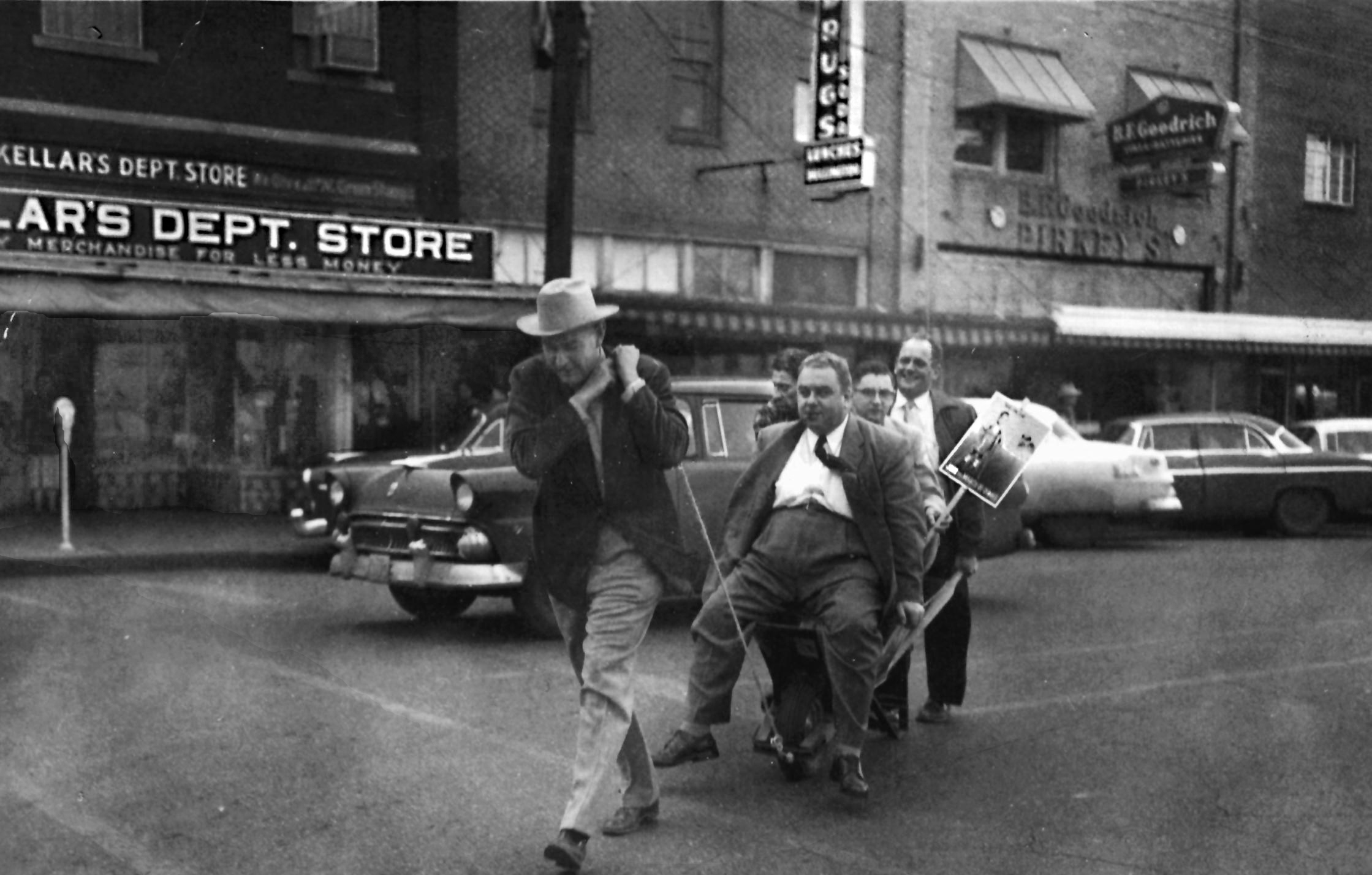
By HUDSON OLD
Journal Publisher
Turn on, tune in, drop by.
It’s not too late to get your name on the air in turn for anything they can sell when the annual Lions Club radio auction goes live from the lobby of American National Bank.
Going back to the day young and upcoming businessman Joe Buford and station owner Winston Ward collected $10 for wheel-barrowing a lawyer and a banker around the courthouse, the broadcast is a community tradition, a format for the hokiest show in town.
“Sometimes the sillier we get the better it works,” said Mr. Buford, whose close friends had no hesitation in their plot to betray him, once taking bids for his fairly on-key rendition of the Eyes of Texas.
It’s a show naturally assuming an audience knowing enough to catch the town’s inside jokes and up to date on Texas lore.
Joe Buford’s allegiance to Texas A&M rises to a near spiritual nature. He’s the only man in town with a bumper sticker declaring himself an “Aggie Catholic.”
The Eyes of Texas is, of course, the traditional rival University of Texas school song.
A veteran of World War II whose post-service career opened selling insurance from a Terrell office that also financed car sales, in 1948 Mr. Buford teamed up with an army buddy turned car salesman, came to Mt. Pleasant and went to work selling insurance, writing car notes then discounted for bulk sale to bankers.
The Talk-A-Thon tale goes back to a Lions Club auction from a flatbed trailer on the town square, said club Historian Waylon Moore.
“They set up loudspeakers and started auctioning merchant donations to raise money for the March of Dimes,” he said. KIMP station owner Winston Ward was a big Lion so he put it on the radio.
Built around the vision of a dime donation from every child in America, the March of Dimes in the 1950’s was among the greatest grass roots campaigns in American History.
It galvanized national spirit the same way war-time rationing had touched every citizen through the uncertain years of a just-ended war. It provided a way for all to express for a dime their compassion for every parent’s fear of a crippling if not fatal virus seeping through the ranks of children.
From the late 40’s until the 1955 approval of the vaccine developed by Jonas Salk, the rate of the rise of polio cases eclipsed the national birth rate at the height of the Baby Boom. The March of Dimes campaign funded long-term care for 80 percent of survivors.
Instead of dimes, the KIMP broadcast launched a call-in response harvesting dollars.
“Winston Ward was one among many who stood out in my father’s stories,” said local attorney Bird Old III, whose father was the lawyer on the wheelbarrow ride with the banker that day. “If Winston said ‘ride in a wheel barrow’ you did it because Winston’s philosophy of business came from understanding that the highest reward in life comes from loving your neighbor as yourself. Winston Ward was a success because he did everything he could to create success for everything and everyone around him.”
The KIMP call letters he gave his station were an acronym – Keep Improving Mt. Pleasant.
He was a member of the Methodist men’s Sunday school class that established the tradition of painting and repairing old bicycles for kids at Christmas.
He was part of an informal band of investors “digging the money out of their pockets for industrial development,” Mr. Old said. “They were bankers and a wave of young businessmen with a lot of veterans returning from a war that had saved the world from the Axis powers. They understood the value of people pulled together by a common mission.”
They put money up to fund a boat manufacturer.
“We all bought stock and the company went broke and we all lost our money,” Mr. Buford remembered, and he laughed.
Car dealers and rival bankers were prominent in the group. Competing businessmen and opposing politicians populated the ranks.
“In terms of defining a town, the times they lost might be more important than their successes,” Mr. Old said. “Whether they won or got beat they did it together and they pulled their town together. Whatever natural conflicts they had were secondary to a bigger agenda.”
The vaccine that put an end to polio didn’t put an end to the annual Lions Club fundraiser, just shifted what Winston Ward and the rest of the club elected to do with it.
They still stream money from their radio auction to youth. They provide glasses for every student the school nurse sends them. They sponsor summer league sports and fund tailored adventures at a camp for handicapped children, Mr. Buford said.
He’ll be 90 this year, the last of a generation that established the hokiest tradition of Winston Ward’s radio, for all the right reasons.
More than half a century later, the new generation at East Texas Broadcasting reflects the same thinking over an expanded 13-county region.

